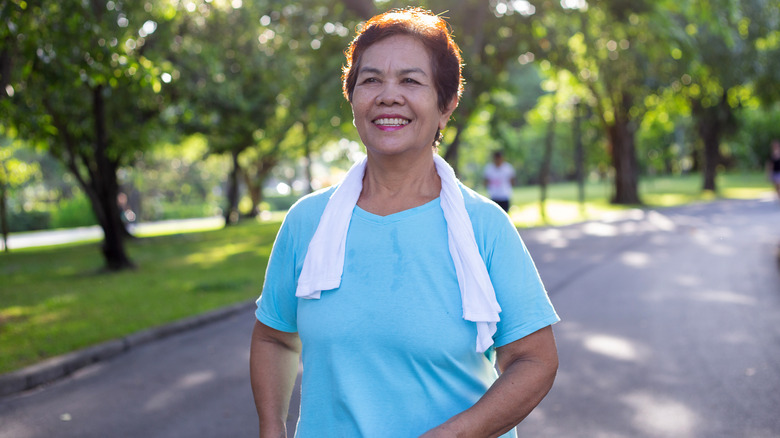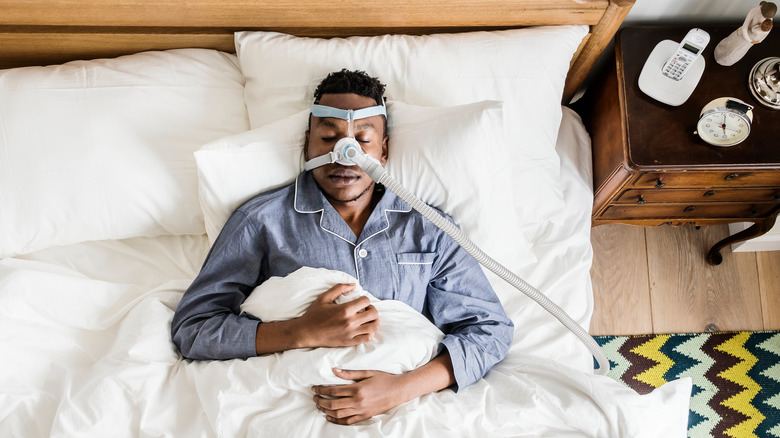How Walking Can Reduce Your Risk For Sleep Apnea
Those with sleep apnea experience on-and-off obstruction of their airways as they sleep (via National Heart, Lung, and Blood Institute). Risk factors associated with the condition include hormone fluctuations or having oversized tonsils. Oftentimes, affected individuals may gasp, choke, take long pauses in their breathing, or snore particularly loud while sleeping (via WebMD). In addition to feeling tired the next day, sleep apnea can have long-term health effects such as an increased chance of heart attack, stroke, high blood pressure, or abnormal heart rate.
While sleep apnea can be related to certain health conditions, experts say there are things we can do that may help reduce our chances of developing the disorder, including taking a short daily walk (via MindBodyGreen). Researchers of a 2020 study published in the Journal of Clinical Sleep Medicine examined previously gathered survey data from 155,448 men and women between 18 and 99-years-old in Canada. They set out to test their hypothesis that physical activity could help reduce rates of obstructive sleep apnea among adults.
Aim for this many minutes of walking per day
Researchers also looked at lifestyle factors in the 7,666 study participants found to have been diagnosed with sleep apnea, such as inactivity (via Journal of Clinical Sleep Medicine). Findings showed that those with obstructive sleep apnea spent an average of 46 hours each week sitting.
While high-intensity and moderate levels of exercise were found to decrease sleep apnea risk, interestingly, research also showed that even just a 10% increase in light exercise was also enough to reduce one's risk for sleep apnea (via MindBodyGreen). "One surprising finding was that not only vigorous physical activity but also just walking alone was associated with a decreased risk of sleep apnea," senior author of the study Dr. Lyle Palmer elaborated in a public statement (via MindBodyGreen).
Specifically, researchers suggest engaging in 20 minutes of walking or more each day in order to reap these sleep benefits. For those who prefer more intensive exercise —such as aerobics, fast cycling, or heavy weight lifting, as categorized by study researchers — only eight more minutes is enough to reduce your chances of developing sleep apnea.


